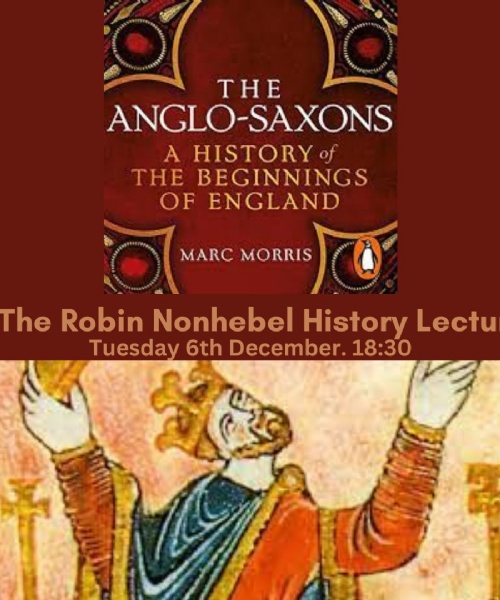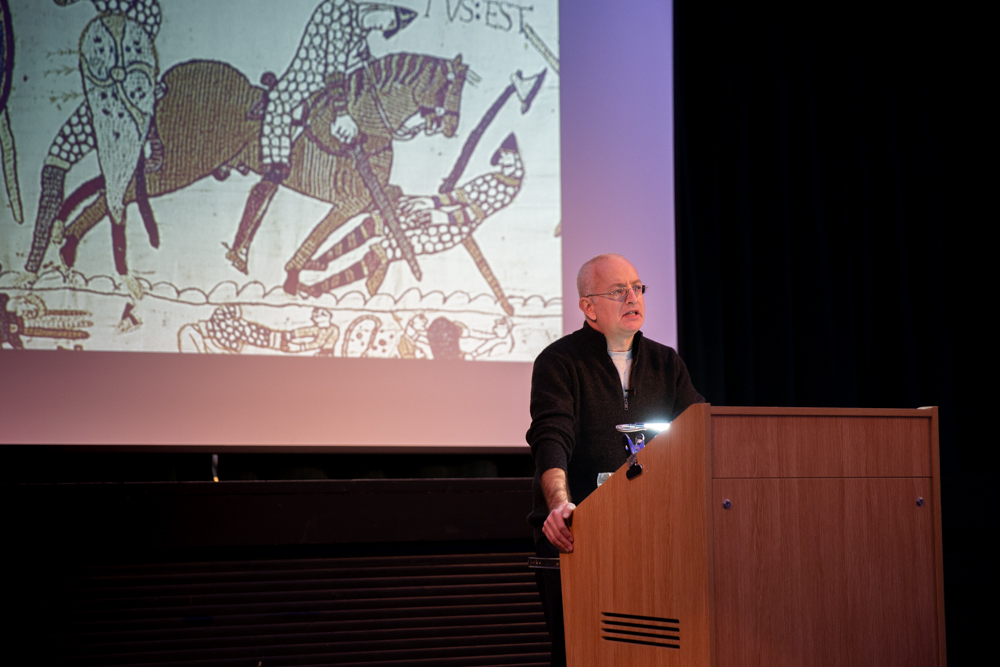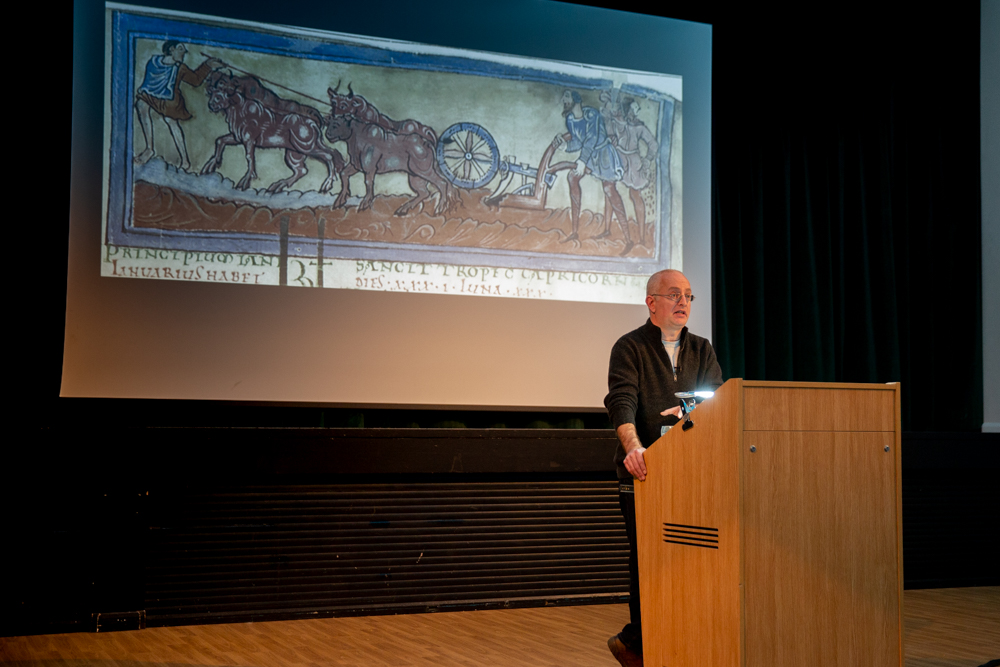Anglo-Saxon Insights

We were delighted to welcome historian, broadcaster and author Dr Marc Morris to St Benedict's to give this year's Nonhebel History Lecture on December 6th: Anglo-Saxons - Myth and Reality

Eleanor Bowden (Upper Sixth) summarises what Dr Morris had to say:
The highly acclaimed medieval historian and author, Dr Marc Morris, came to St Benedict’s to deliver the most fascinating lecture on the Anglo-Saxons. Breaking down popular myths surrounding the period and the people, he enriched our understanding of the impact of medieval and even later Victorian propaganda on our view of their lives today. From the position of women in Anglo-Saxon society to whether kings were democratically elected, Dr Morris painted a picture of a brutal world far removed from the often-romanticised pre-Norman age. Indeed, he highlighted the complexities of life following the Norman Conquest and how traumatic the invasion must have been, explaining why the legend of the idyll was created as native historians sought to reconcile with 1066’s damage to Anglo-Saxon pride. As the medieval chroniclers found comfort in expressing frustration with Norman rule and contrasting their criticisms of the conquerors with reminiscing for the idealised centuries before, so too Dr Morris explained how kings like Alfred the Great were used by the Victorians to glorify the beginnings of Empire in the union of Wessex and Mercia. This was an example of how history can be appropriated dangerously, used to support colonialist ideologies. The concept of ‘Englishness’ itself was formed in such a way in Anglo-Saxon times too: in his ‘Ecclesiastical History,’ Bede used the idea of a shared heritage to promote Christianity by creating a sense of social cohesion in England, while Alfred the Great developed this by promoting the English language to unite his subjects against heathen Viking invaders. Thus, this talk appealed to both our medievalist and modernist historians alike as we were pressed to consider why such myths and legends are created and permitted to inhabit a society’s imagination, inspiring us further to the study of history as we were encouraged to see past such illusions to come closer to the truth. Dr Morris’ lecture was illuminating, exciting, and different – while his approach to women’s history seemed to perhaps dull the excitement of the perceived military heroines of the period, like Aethelflaed, Lady of the Mercians, as he deconstructed the myth built around her of such strong female characters living in Anglo-Saxon times rather than discuss how historians can actually construct the lives of those without control of the narrative by using archaeological evidence and reading in between the lines of our primary sources to see past prejudice, by looking at how history can become tangled with myth and legend, Dr Morris’ lecture left us with a powerful message to question what we know, surely pushing us to become the best historians we could hope to be.
